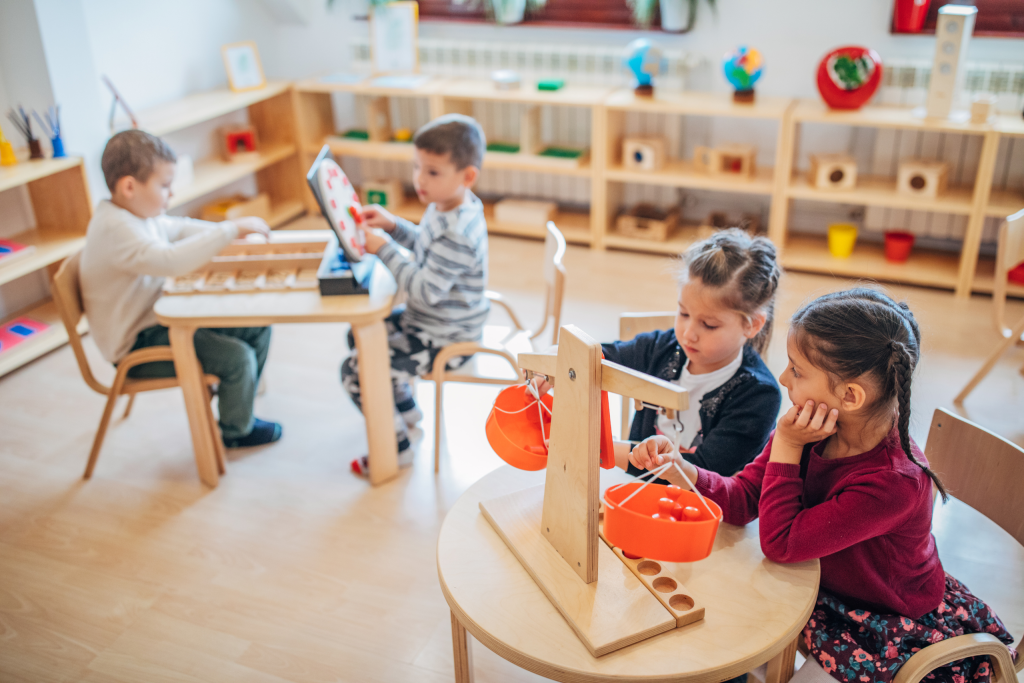Early childhood development is a critical stage in a child’s life, laying the foundation for lifelong learning and success. Innovative approaches to early learning can help nurture a child’s cognitive, emotional, and social growth. Among the most widely discussed approaches is Montessori education, but there are various other methods that can also foster healthy development in young children. In this article, we’ll explore some of these strategies, highlighting the Montessori preschool and Montessori academy as well as other valuable educational options.
Montessori Preschool: Ensuring a Holistic Learning Experience
One of the most prominent methods of early childhood education is the Montessori approach, which emphasizes child-centered learning. A montessori preschool creates an environment where children are encouraged to explore and learn at their own pace. The curriculum is designed to allow children to choose their activities from a wide range of hands-on materials that stimulate their natural curiosity. This fosters independence, problem-solving skills, and a love for learning from an early age. Montessori preschools also emphasize social development, as children often work together in collaborative activities, helping them build communication and social skills.
Montessori Academy: Cultivating Lifelong Learning
A Montessori academy extends the principles of Montessori education beyond preschool to the elementary and secondary levels. This type of institution takes a more structured approach to curriculum development while maintaining the child-centered philosophy that emphasizes independence, self-direction, and collaboration. In a montessori academy, children are provided with a learning environment that fosters exploration, discovery, and critical thinking. The academy model encourages students to pursue their interests, allowing for more personalized and effective learning. The Montessori method’s focus on respect for the individual, hands-on learning, and a deep connection to the environment makes it an attractive option for parents seeking a well-rounded education for their children.
Reggio Emilia Approach: Encouraging Creativity and Expression
Another innovative approach to early childhood education is the Reggio Emilia approach, which places a strong emphasis on creative expression and collaborative learning. Developed in Italy, this approach views children as competent, capable learners who can construct their own understanding of the world through interaction with their environment. The curriculum is designed around the interests of the children, who are encouraged to express their thoughts, ideas, and emotions through a variety of mediums, including art, music, and movement. The teacher acts as a facilitator, guiding children as they explore their environment and develop critical thinking skills.
Waldorf Education: Fostering Imagination and Emotional Growth
Waldorf education is another popular early learning approach that emphasizes imagination, creativity, and emotional growth. Founded by philosopher Rudolf Steiner, Waldorf education focuses on providing a nurturing environment that encourages children to explore and learn through play, storytelling, and artistic activities. The curriculum is designed to align with the developmental stages of children, gradually introducing more complex concepts as they mature. Waldorf education places a strong emphasis on emotional development, fostering empathy, social skills, and a sense of community. This approach values the holistic development of the child, integrating artistic, academic, and social learning experiences.
Traditional Preschool: A Structured and Familiar Option
While Montessori, Reggio Emilia, and Waldorf approaches are widely recognized for their innovative methods, traditional preschool education remains a popular choice for many parents. Traditional preschools generally offer a more structured curriculum, with specific lessons on subjects like numbers, letters, and colors. These programs may offer a more familiar environment, with teachers following set lesson plans and standardized teaching methods. Although traditional preschools are less flexible than the Montessori or Reggio Emilia approaches, they still provide valuable early learning experiences that can prepare children for kindergarten and beyond.
Play-Based Learning: The Foundation of Early Childhood Education
No matter the educational model, play-based learning is universally recognized as a vital aspect of early childhood development. Play-based learning allows children to explore concepts and build skills in a relaxed and enjoyable setting. Whether through structured activities or unstructured playtime, children learn critical cognitive and social skills by interacting with their peers and environment. Play-based learning encourages creativity, problem-solving, and cooperation, laying the groundwork for future academic and social success.
Conclusion: Choosing the Right Approach for Your Child
Fostering early learning through innovative approaches to child development is essential in providing a strong foundation for future success. Whether you choose a Montessori preschool, Montessori academy, Reggio Emilia, Waldorf, or traditional preschool, each method offers unique benefits. The key is to find an educational approach that aligns with your child’s needs, interests, and learning style. By embracing the strengths of these innovative learning strategies, parents can help their children develop into confident, capable, and lifelong learners.




